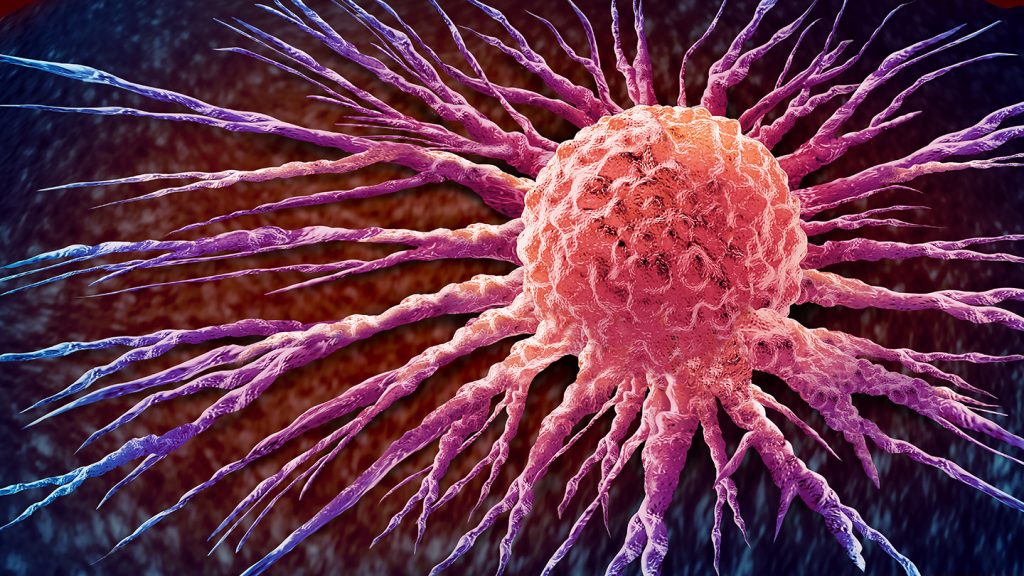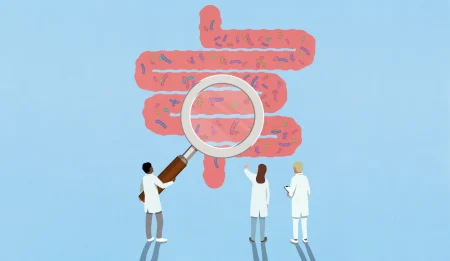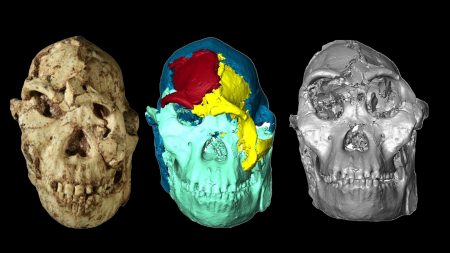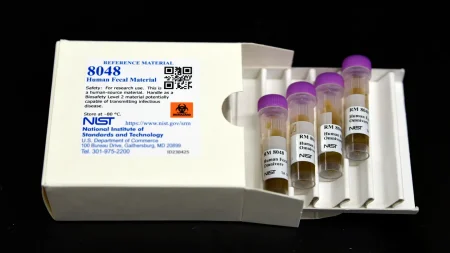The PCSK9 Gene: A Potential Driver of Breast Cancer Metastasis
A groundbreaking study has revealed a surprising link between cholesterol regulation and the spread of breast cancer. Researchers have identified a variant of the PCSK9 gene, primarily known for its role in cholesterol metabolism, as a significant contributor to breast cancer metastasis. This discovery, published in the journal Cell, not only sheds light on the complex mechanisms governing cancer progression but also offers a potential therapeutic avenue using an existing cholesterol-lowering antibody.
The research team, led by Sohail Tavazoie of Rockefeller University, embarked on this investigation after years of unsuccessful attempts to pinpoint mutations within tumor cells that trigger metastasis. Wenbin Mei, a cancer biologist in Tavazoie’s lab, hypothesized that inherited genetic variations, rather than tumor-specific mutations, might be responsible for the propensity of cancer cells to spread. This innovative approach led them to focus on the PCSK9 gene.
Analysis of a large Swedish cohort revealed a strong association between the PCSK9 gene variant and breast cancer metastasis. Individuals inheriting two copies of this variant faced a substantially elevated risk of metastasis—22% within 15 years of initial diagnosis—compared to a mere 2% risk for those with one or no copies. This observation was further corroborated by re-evaluating data from three independent studies, which consistently demonstrated lower survival rates among patients carrying two copies of the variant.
The prevalence of this gene variant is notably high across various populations. Approximately 70% of individuals of European or African descent carry two copies, while the variant is near-ubiquitous in East Asians and common in South America. This widespread presence underscores the potential impact of this discovery on breast cancer patients globally.
Intriguingly, the mechanism by which this PCSK9 variant promotes metastasis appears independent of its cholesterol-regulating function. Experiments in mice treated with statins, drugs that lower cholesterol, failed to prevent cancer spread. Further investigation revealed that the protein produced by the pathogenic PCSK9 variant disrupts a critical regulatory pathway, effectively removing a molecular brake that normally suppresses two genes known to promote cancer spread.
A Promising Therapeutic Strategy: Repurposing a Cholesterol-Lowering Antibody
The research unveiled a promising therapeutic strategy that builds upon existing knowledge and available treatments. The researchers found that a lab-made antibody, already approved for treating high cholesterol, effectively counteracts the metastatic effects of the PCSK9 variant. This antibody works by preventing the PCSK9 protein from removing the molecular brake, thereby hindering the activation of metastasis-promoting genes.
While the antibody doesn’t offer a complete cure, it demonstrably reduces breast cancer metastasis in mouse models. This finding holds immense clinical potential, suggesting that repurposing this readily available antibody could offer a new line of defense against breast cancer spread.
Looking Ahead: Clinical Trials and Early Intervention
The researchers are optimistic that the antibody’s efficacy could be amplified by administering it earlier in the disease course, potentially even before the onset of cancer in high-risk individuals carrying two copies of the PCSK9 variant. Clinical trials are crucial to validate this hypothesis and to determine the antibody’s effectiveness in preventing metastasis or improving survival rates in patients with existing metastatic breast cancer.
This study represents a significant stride in understanding the intricate interplay between genetic predisposition and cancer progression. It underscores the importance of exploring non-tumor cell factors in metastasis and highlights the potential of repurposing existing drugs for novel therapeutic applications. The PCSK9 gene variant may serve as a valuable biomarker for identifying individuals at high risk of breast cancer metastasis, allowing for targeted interventions and potentially revolutionizing breast cancer management.
Further Implications and Future Directions
Beyond the immediate implications for breast cancer, this research opens new avenues for investigating the role of PCSK9 in other cancer types. Given its widespread presence, it’s plausible that this gene variant may influence metastasis in other cancers, warranting further investigation. The discovery also underscores the importance of considering the broader biological context of genes, particularly those involved in fundamental cellular processes like cholesterol metabolism, when studying complex diseases like cancer.
The success of this research exemplifies the power of interdisciplinary collaboration and innovative thinking. By bridging the fields of cholesterol metabolism and cancer biology, the researchers have uncovered a previously unrecognized link with significant therapeutic implications. Further studies, including clinical trials, are eagerly anticipated to translate these findings into tangible benefits for breast cancer patients and potentially to expand our understanding of metastasis across various cancer types.
The Intersection of Genetics and Therapy
This discovery underscores the growing understanding that cancer is not solely driven by mutations within tumor cells but also by inherited genetic factors that can influence disease progression. The PCSK9 variant serves as a prime example of how inherited genes can create a permissive environment for cancer spread. This knowledge is paramount for developing personalized medicine approaches that consider individual genetic predispositions when designing treatment strategies.
The fact that an existing cholesterol-lowering antibody shows promise in hindering cancer spread highlights the potential of drug repurposing. Repurposing offers a faster and more cost-effective path to developing new cancer therapies compared to developing novel drugs from scratch. This approach leverages existing knowledge and resources, accelerating the translation of scientific discoveries into clinical applications.
The Significance of Early Detection and Prevention
The potential for using the PCSK9 antibody as a preventative measure in high-risk individuals highlights the importance of early detection and risk assessment. Identifying individuals with two copies of the variant through genetic testing could pave the way for targeted preventative strategies, potentially reducing the incidence of metastatic breast cancer. This proactive approach aligns with the increasing focus on precision medicine and preventative oncology.
In conclusion, the discovery of the PCSK9 gene’s role in breast cancer metastasis marks a significant advance in cancer biology. This research not only provides a crucial piece of the puzzle in understanding cancer spread but also offers a promising new therapeutic avenue. The potential of repurposing an existing cholesterol-lowering antibody, combined with the possibility of early intervention in high-risk individuals, holds immense promise for improving breast cancer outcomes and potentially revolutionizing how we approach cancer prevention and treatment.














